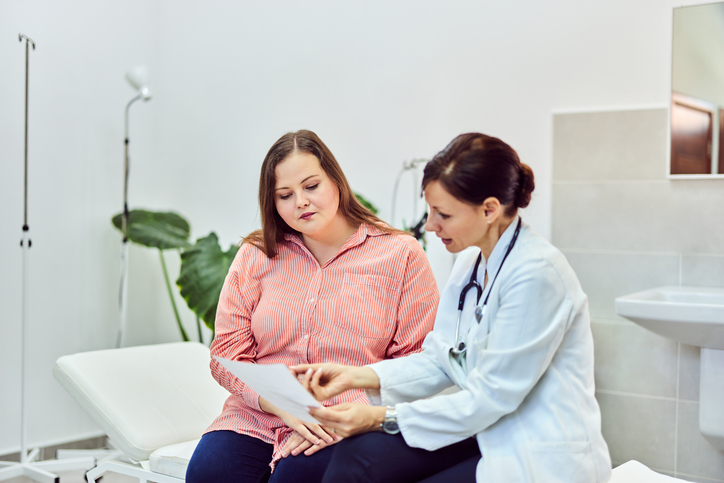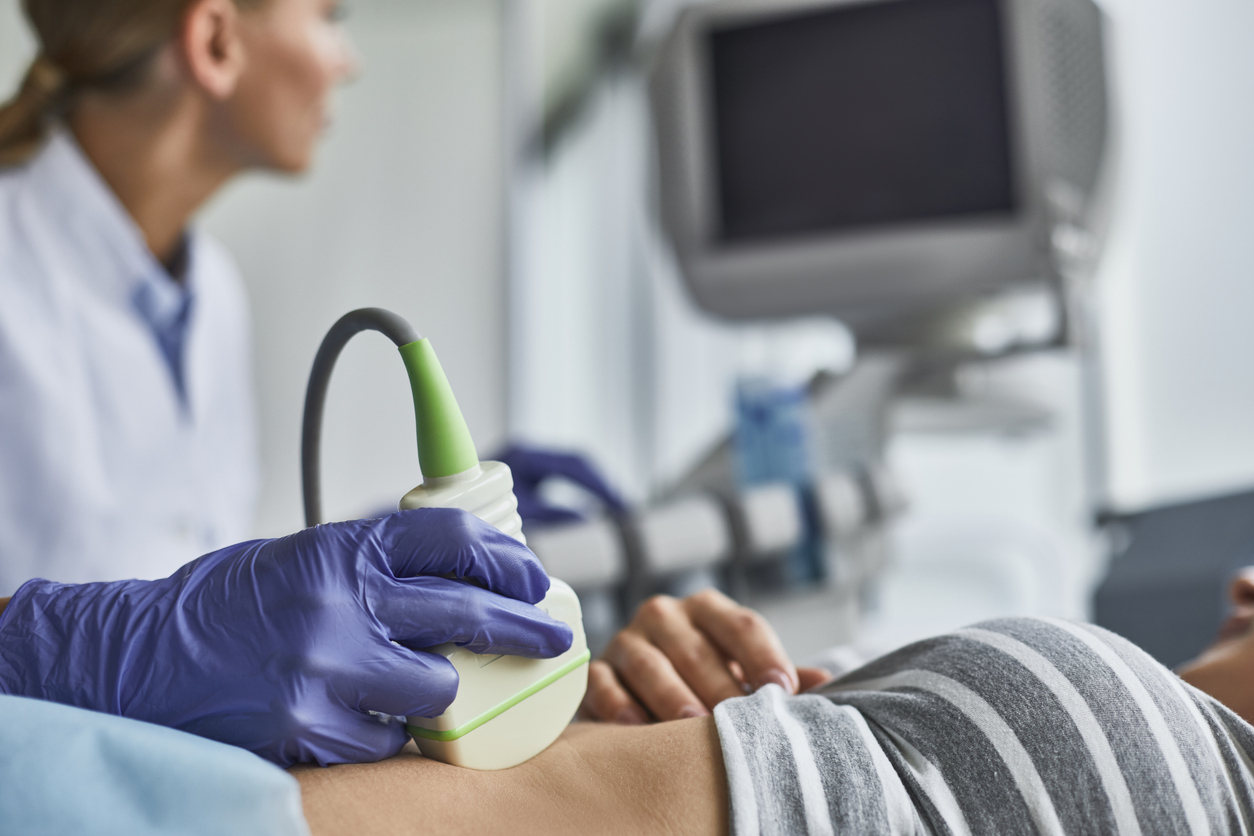Uterine fibroids are growths that develop in or on the uterus. They’re made up of muscle and connective tissue and can range in size from tiny, barely noticeable lumps to large masses that cause discomfort.
They’re incredibly common — so common, in fact, that if you have a uterus, there's a good chance you'll have at least one fibroid in your lifetime. And while fibroids are considered a type of tumor or growth, the good news if that fibroids are almost always benign (noncancerous). But if you've been diagnosed with fibroids, it’s only natural to wonder: Can uterine fibroids ever be cancerous? Let’s look at the science.

Can a uterine fibroid turn out to be cancerous?
The short answer? It’s extremely rare.
Fibroids are typically noncancerous growths made up of muscle and connective tissue, and they don’t suddenly “turn” cancerous. The type of cancer people often worry about is leiomyosarcoma, a rare and aggressive cancer that forms in the uterus's smooth muscle tissue. But research shows that leiomyosarcomas don’t actually develop from existing fibroids — they occur independently. So, having fibroids does not increase your risk of uterine cancer.
What if it's a fast-growing fibroid?
Fibroids can vary in size — from tiny seed-like growths to ones as large as a grapefruit. While many grow slowly, some can increase in size more rapidly due to hormonal changes, pregnancy, or just random biological factors. A fast-growing fibroid isn’t automatically cancerous, but it’s worth bringing up with your doctor, especially if:
- It keeps growing after menopause
- It’s growing much faster than expected
- You’re experiencing severe pain or abnormal bleeding (with or without clots) alongside the growth
In these cases, your doctor might recommend further testing to rule out anything more serious.
What’s the difference between fibroids and uterine sarcomas?
One of the biggest concerns people have is whether their fibroid could actually be a hidden cancer. The good news? Fibroids and uterine sarcomas are completely different conditions.
Fibroids are benign muscle growths that do not turn into cancer. Uterine sarcomas are rare but malignant (cancerous) tumors that develop in the muscle or connective tissue of the uterus.
A key distinction is that leiomyosarcoma (a type of uterine sarcoma) does not develop from fibroids. It occurs separately and has no connection to existing fibroids. That’s why the vast majority of people with fibroids never have to worry about them becoming cancerous.
If doctors suspect something unusual — such as a fibroid growing rapidly or having an irregular appearance on imaging — they may recommend additional tests like an MRI or biopsy to rule out other conditions.

What are the chances of a uterine fibroid being cancerous?
Here’s some reassuring news: the odds of a fibroid being cancerous are incredibly low.
Medical studies estimate that less than 1 in 1,000 fibroids turn out to be cancerous. That means that for the vast majority of people, fibroids are nothing to stress about in terms of cancer risk. However, doctors still keep an eye on fibroids that behave unusually — like those that grow quickly, cause extreme symptoms, or appear suspicious on imaging scans.
What are the symptoms of cancerous uterine fibroids?
Because fibroids and uterine cancer can have overlapping symptoms, it’s understandable to feel concerned if you’re experiencing changes in your body. While most fibroids cause no serious issues, here are some symptoms that warrant a doctor’s visit:
- Unusual vaginal bleeding (especially between periods or after menopause)
- Rapidly growing fibroid, especially post-menopause
- Pelvic pain that’s persistent or worsening
- Unexplained weight loss or fatigue
Again, most people with fibroids will never develop cancer, but it’s always best to check in with your doctor if something doesn’t feel right.

Can an ultrasound tell if a fibroid is cancerous?
Ultrasound is great for spotting uterine fibroids, but it can’t confirm whether one is cancerous. Instead, doctors may look at factors like:
- Size and shape of the fibroid
- Growth pattern (Is it growing very fast?)
- Texture (Cancerous growths often look different than benign ones on scans)
If there’s any concern, your doctor might recommend an MRI or biopsy for a closer look.
Do fibroids increase the risk of other gynecological cancers?
Nope! Having fibroids does not increase your risk of developing other gynecological cancers like ovarian or endometrial cancer. Fibroids and cancers of the reproductive system are completely separate conditions, even though they can sometimes cause similar symptoms (like heavy bleeding or pelvic pain).
However, a (limited) study has shown a potential link to uterine fibroids and thyroid cancer, but they might not be a cause — other factors, like genetic predisposition, lifestyle habits, and BMI, weren’t accounted for in the study. A similar study suggests that there could be some genetic correlation between uterine fibroids and endometrial cancer, so it’s worth looking into your family history and talking with your doctor.

Separating myth from reality about fibroids and cancer
Fibroids are almost always harmless. While the idea of cancer can be scary, the actual risk of a fibroid being malignant is extremely low. That said, it’s always a good idea to advocate for your health — if something feels off, trust your gut and get it checked out. Your well-being matters, and staying informed is one of the best ways to take control of your health.
Tassia O'Callaghan is an experienced content writer and strategist, having written about a vast range of topics from chemical regulations to parenting, for brands like Peanut App Ltd, Scary Mommy, Tally Workspace, and Office Christmas. She's an advocate for realistic sustainable living, supporting small businesses (author of A-Z of Marketing for Small Businesses), and equity across all walks of life. Follow her on LinkedIn or TikTok, or see more of her work on Authory or her website.








.webp)










